Travelers Reveal Hidden Danger of Carrying Cash at Airports—And It’s Not Pickpockets
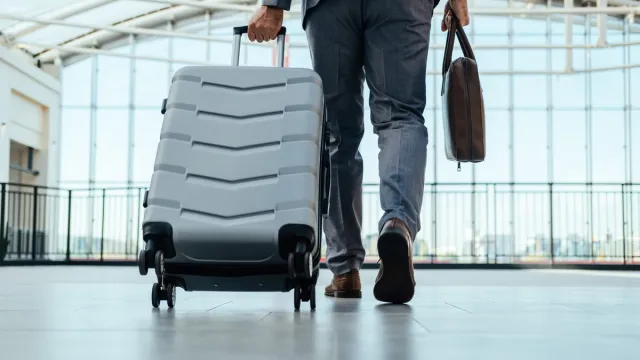
There are plenty of things we know not to bring through airport security: aerosol cans, filled water bottles, any liquids larger than 3.4 ounces. But there are also things you have every legal right to hold onto that you might want to consider leaving at home. There are rising concerns about carrying cash at airports, with many travelers thinking twice about how much they have on them. Read on to learn about this hidden danger, and why you might want to stick to a credit card instead.
RELATED: TSA Officers Just Revealed the 6 Things They “Never Do When Flying.”
TSA does not limit how much cash you can bring through the airport.
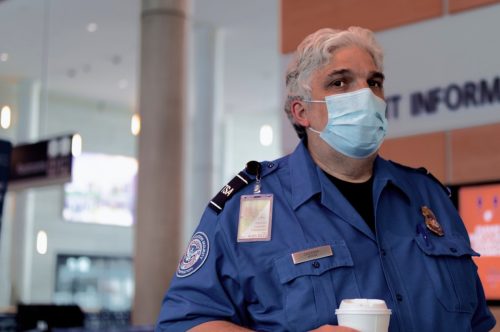
If you need to bring a large sum of money with you through the airport, you’re allowed—at least to a point. According to U.S. Customs and Border Protection (CBP), you must file a report only if you’re trying to transport more than $10,000 from another country into the U.S., or from the U.S. to another country.
But on a domestic flight within the U.S., there is no law or rule that requires you to disclose that you’re carrying $10,000 or more in cash, Florida-based Sammis Law Firm explains on their website.
“You can fly with any amount of cash. No law prohibits you from bringing any amount of money on a flight,” these experts state. “Likewise, TSA has no rules that limit how much money you can bring through security. In other words, TSA has no cash limit per person.”
RELATED: 10 Airport Security Secrets TSA Doesn’t Want You to Know.
But you could still end up getting that money confiscated.
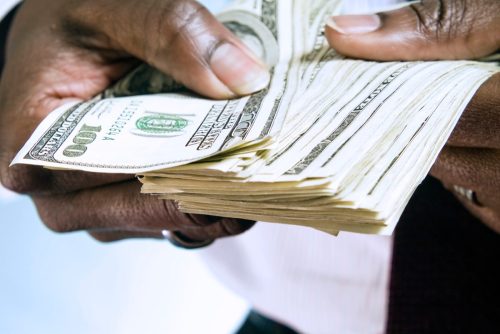
Despite no clear rule against it, some travelers claim that they’ve had their money confiscated by officials. Atlanta News First recently reported that they’ve found several similar cases of officers with the U.S. Drug Enforcement Administration (DEA) task force or the Clayton County Police searching people and seizing money at Hartsfield-Jackson Atlanta International Airport.
Plainclothes officers are reportedly searching travelers for drugs, but police records and federal court documents indicate that these agents rarely find drugs on passengers, according to Atlanta News First. Instead, they often find money.
The news outlet reported that records show agents have seized millions of dollars from passengers at boarding gates at Hartsfield-Jackson International Airport. The cash is then administratively forfeited as the proceeds of drug trafficking even when no drugs are found, according to Atlanta News First.
RELATED: TSA Issues New Alert on What You Can’t Bring Through Security.
One man had $8,500 seized by officials at the Atlanta airport.
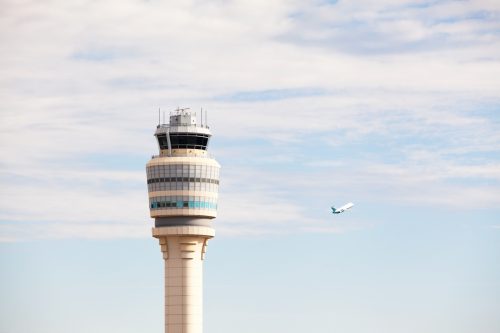
Among those who have been stopped was Emmy-winning actor Jean Elie—who was searched by Clayton narcotics officers on the jet bridge of an Atlanta-to-Los Angeles flight in 2020, Atlanta News First reported.
“I’m a random search, guys. So he says,” Elie said on a recording he made of the drug agents searching his bag. “See all those white folks, and I’m the random search.”
They didn’t find anything in Elie’s carry-on bags. But during a similar incident in March 2021, musician Brian Moore told Fox News that he was waiting for his Los Angeles-bound flight at the Atlanta airport when two women approached him and said they worked with the DEA. He was interrogated and the agents seized the $8,500 in cash he was carrying with him to fund his first music video, according to the news outlet.
Despite this, Moore was never found to have drugs or charged with a crime. “It was terrible, the worst experience of my life,” he told Fox News. “They basically, in that one day, in those few minutes, ruined my entire music career.”
Travelers are often forced to prove that their money is “innocent.”
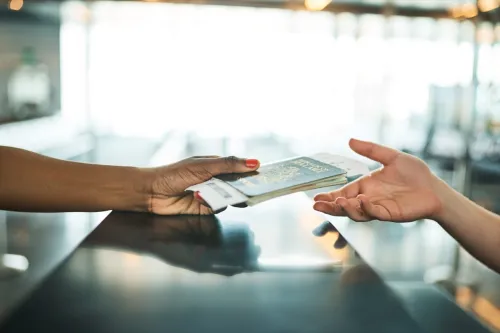
Moore finally got his money back after a yearlong legal battle, Fox News reported. But the ordeal cost him $ 15,000 in legal fees—nearly double the amount of money that had initially been taken from him.
Atlanta News First found dozens of cases filed in federal court involving currency seized from travelers like Moore. According to the local news outlets, passengers must file a claim within 45 days of receiving official notice that the government has seized their money or it’s automatically forfeited.
The burden of proof is technically on the federal government to show evidence that they believe the money is more likely than not from drug trafficking. But according to Atlanta News First, court records show that in practice, passengers are often forced to prove that their money is “innocent” on the spot at the airport or have it seized as drug proceeds.
RELATED: For more up-to-date information, sign up for our daily newsletter.